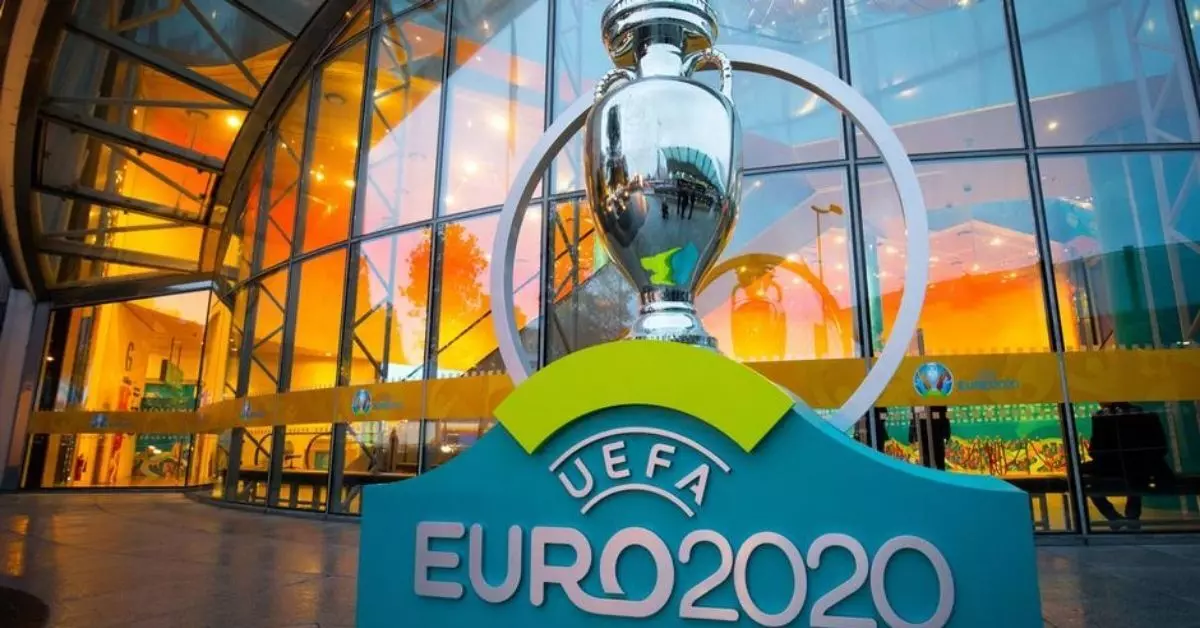Football
Euro 2020: 5 things to know about this edition that makes it unique
Euro 2020 is going to be the most unique European Championship in the 60-year history of the competition. Here's why.

The Euro 2020 trophy (Source: Picture-Alliance/DPA)
The European Championships or Euros have always been a special tournament for football fans. Second only to the World Cup in terms of importance and the quality of participating teams, the Euros have provided the perfect backdrop for several 'players' to go on and become 'stars'.
This year though, the pandemic situation and higher involvement of technology make the Euros extra special. Let us analyse how.
Euros in an odd year
This year's tournament will still be referred to as Euro 2020 to serve as a reminder that football, and the world itself, has risen above the turmoil induced by COVID-19 and has moved past that. It was also supposed to be the 60th year of the competition's existence in 2020 and that sentiment will be carried forward. Nonetheless, never before in the history of the competition has the Euros been held in an odd year making this edition a one-of-its-kind.
Use of VAR
While the football world might still be split in its opinion on how best to use the Video Assistant Referee (VAR) technology, it can be safely said that it is here to stay. There will be modifications to it as leagues and federations keep tweaking it from time to time, but the fact that VAR will be an integral part of Euro 2020 is a big step forward in accepting the limitations of the human brain. We already saw its implementation in the 2018 World Cup, and three years down the line, the expectation will be that referees and match officials can use it correctly and to its full potential.
5-Substitutes rule
This is also the first time that an international football tournament will have the 5-substitutes rule. Mostly induced by the pandemic, the rule allows teams to make five substitutions in a game instead of the usual three. However, they have to do that within three stoppages to ensure that no time is wasted. Significantly, the rule has now been extended till December 31 2022, which means that next year's World Cup in Qatar will also have the rule in place.
Increased squad strength
For any tournament, the usual number of players in a squad is 23. However, keeping in mind the possibility of a COVID outbreak in a team and the existing fatigue level in players due to the condensed European season, that number has now been increased to 26. Even so, teams can only name 23 players in their matchday squad in line with the laws of the game, 11 in the starting eleven and 12 on the bench.
11 host cities
In what is a stark departure from previous editions where a single country, or at times two nations, hosted the event, Euro 2020 will be played in 11 cities across Europe. The venues are:
1. Wembley Stadium, London, England
2. Allianz Arena, Munich, Germany
3. Stadio Olimpico, Rome, Italy
4. Olympic Stadium, Baku, Azerbaijan
5. Puskas Arena, Budapest, Hungary
6. Johan Cruyff Arena, Amsterdam, Netherlands
7. Parken Stadium, Copenhagen, Denmark
8. Hampden Park, Glasgow, Scotland
9. Estadio La Cartuja, Seville, Spain
10. Arena Nationala, Bucharest, Romania
11. Krestovsky Stadium, Saint Petersburg, Russia
The Wembley Stadium in London will host both the semi-finals as well as the final following a gruelling month of footballing action that kicks off on June 11.
